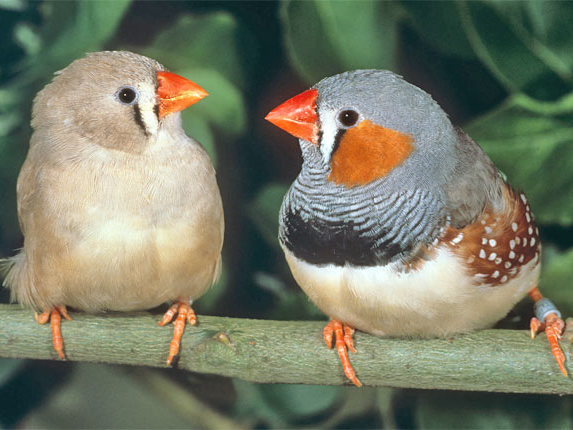Traffic noise may be associated with an increased rate of telomere loss in Zebra finches that have left the nest. Telomeres are caps on the ends of chromosomes that protect genes from damage. Shortening of telomeres indicates accelerated biological aging, according to Science Daily.
Researchers, investigated the effect of traffic noise on the telomere length of offspring Zebra finches. The researchers found that zebra finches that were exposed to traffic noise after they had left the nest had shorter telomeres at 120 days of age than Zebra finches that were exposed to noise until 18 days post-hatch (before they had left the nest) and whose parents were exposed to traffic noise during courtship, egg-laying, and nesting. Finches exposed to noise after leaving the nest also had shorter telomeres than those which had not been exposed to traffic noise at all.
Dr Adriana Dorado-Correa, corresponding author of the study, said: “Our study suggests that urban noise alone, independent from the many other aspects of city life, such as light pollution or chemical pollution, is associated with increased telomere loss and may contribute to aging in Zebra finches. Our study is a first step towards identifying the causal mechanisms that may account for differences in life span observed between birds living in urban or rural environments.”
Dr Sue Anne Zollinger, co-author of the study added: “Cellular aging as a result of urban stressors is something that may not have a very visible impact, but our study indicates that although birds may seem to be adapting to life in noisy cities, they may actually be aging faster. It may be important to consider developmental stages in birds when studying the effects of urbanization, as the mechanisms by which these human-induced habitat changes impact individuals may change throughout their lifetime.”
As only Zebra finches exposed to noise after leaving the nest had shorter telomeres, the authors suggest that the time between 18 and 120 days after hatching is a critical period during which birds are more affected by noise. This period of time is also when Zebra finches begin song learning, which may make them more sensitive to noise. By contrast, Zebra finches may be less sensitive to noise while still in the nest, and parent birds may be able to make behavioural changes to protect offspring from the negative effects of noise exposure.
The researchers evaluated the impact of traffic noise exposure on a total of 263 birds by comparing telomere lengths at 21 and 120 days post-hatch under three different conditions: birds that hatched to parents that were exposed to noise, with the offspring themselves exposed until 18 days after hatching; birds that hatched to non-noise exposed parents but which were themselves exposed to noise from day 18 to 120; and controls in which neither the parents nor the chicks were exposed to noise.
The traffic noise used in the study consisted of recordings of street traffic which mimicked typical urban noise patterns. The researchers collected blood samples for each offspring bird at 21 and 120 days post hatch to measure telomere length and rate of telomere loss.
N.H.Kh

